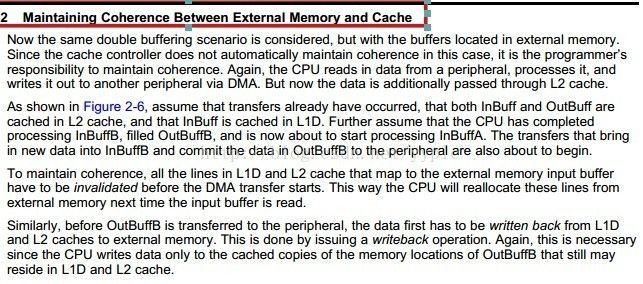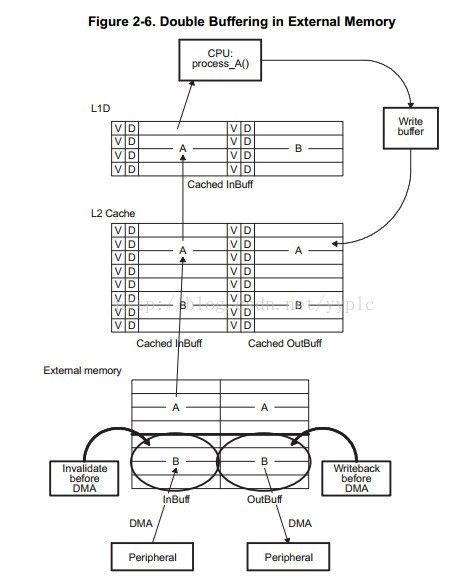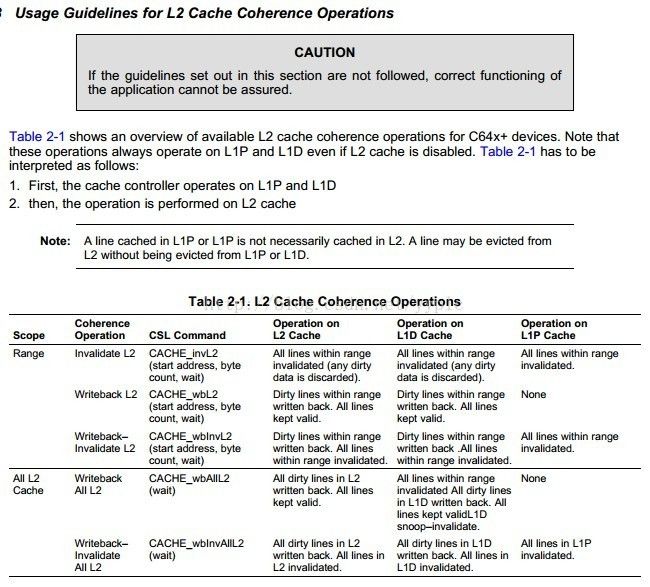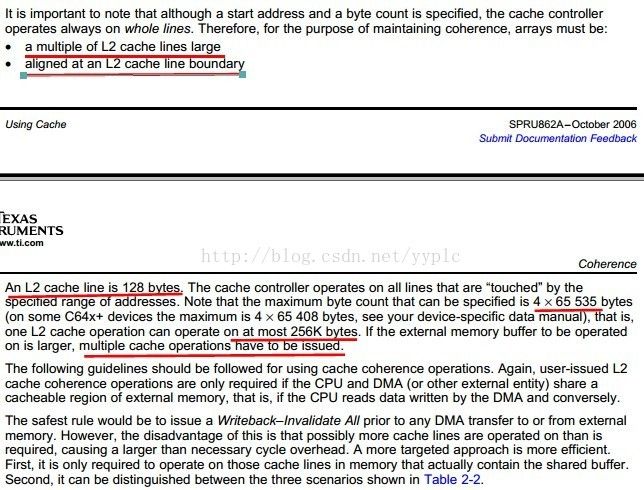TMS32C64X DSP引起cache miss 的三种情况以及Cache Coherence一致性的解决办法
第一种是:Confict Misses 第二种是:Capacity Misses 第三种是Complusory
1,2种可以避免,第三种不可避免
Conflict and Capacity Misses
Evictions are caused by conflicts, that is, a memory location is accessed that maps to the same set as a
memory location that was cached earlier. This type of miss is referred to as a conflict miss, a miss thatoccurred because the line was evicted due to a conflict before it was reused. It is further distinguished
whether the conflict occurred because the capacity of the cache was exhausted or not. If the capacity was
exhausted, all line frames in the cache were allocated when the miss occurred, then the miss is referred to
as a capacity miss. Capacity misses occur if a data set that exceeds the cache capacity is reused. When
the capacity is exhausted, new lines accessed start replacing lines from the beginning of the array.
Identifying the cause of a miss may help to choose the appropriate measure for avoiding the miss. Conflict
misses mean that the data accessed fits into cache but lines get evicted due to conflicts. In this case, we
may want to change the memory layout so that the data accessed is located at addresses in memory that
do not conflict (map to the same set) in cache. Alternatively, from a hardware design, we can create sets
that can hold two or more lines. Thus, two lines from memory that map to the same set can both be kept
in cache without evicting one another. This is the idea of set-associative caches, described in
Compulsory Misses
Alternatively, from a hardware design, the capacity of the cache can be increased.
A third category of misses are compulsory misses or first reference misses. They occur when the data is
brought in cache for the first time. Unlike the other two misses, they cannot be avoided, hence, they are
compulsory.
通常情况下,我们在做图像算法法集成的时候,我们在使用DMA的时候,需要解决Cache Coherence问题!
不然会导致DMA copy 数据出现错误的。Cache Coherence 原理描述:
Cache Coherence的解决办法:
上面截图来自:TI文档spru862.pdf
对于CE中集成自有算法,在使用EDMA时,需要注意DMA Guildlie 和RULES7:
Cache Coherency Issues for Algorithm Consumers
来自:SPRAAG1A
另外见本博客上的另一篇《TI C6000 CodecEngine集成算法核心调用原理》









